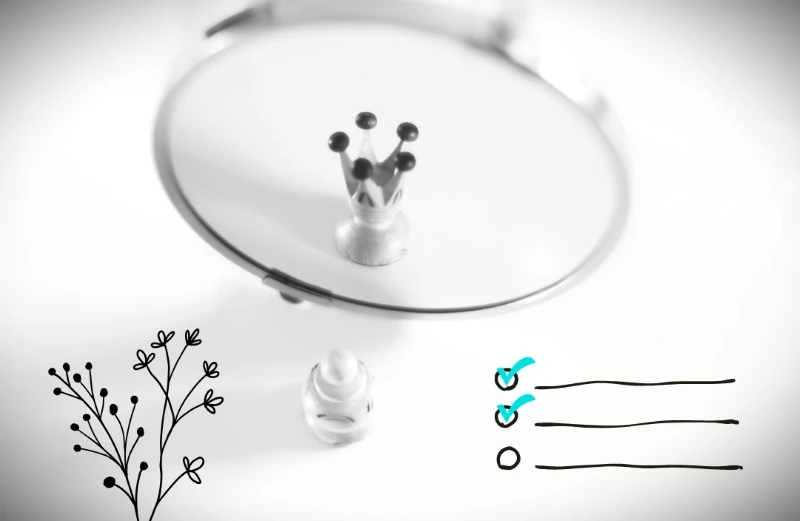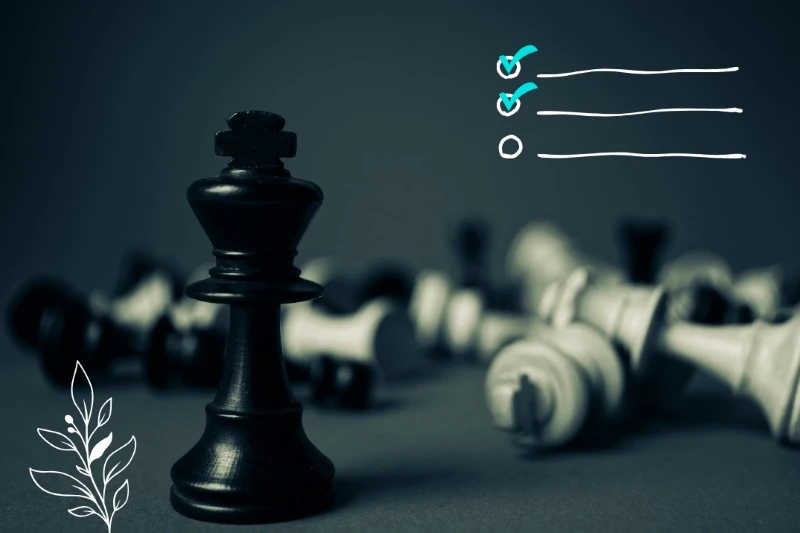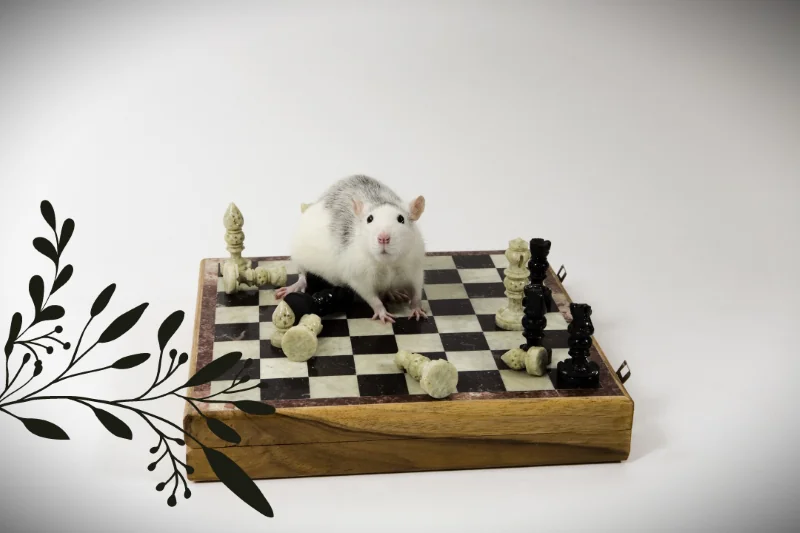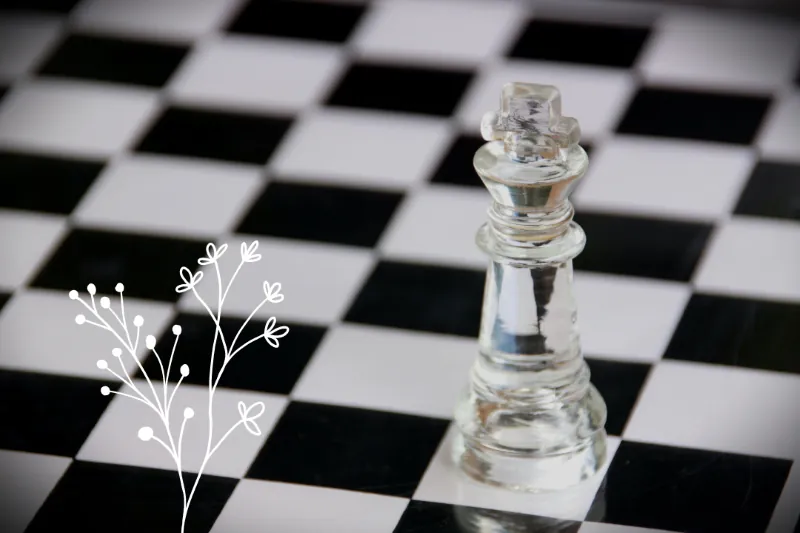According to the most extended study on happiness ever, conducted by Harvard University, the quality of our relationships profoundly impacts our health. And, of course, they also affect our productivity.
In fact, toxic environments or relationships can compromise all other areas of our lives. That is why it is so important to dedicate time to assessing the health of our relationships.
I am sharing with my dear readers the questions I have been asking myself to reflect on the health of my relationships of all kinds: personal, professional, academic, social, virtual, etc.
Throughout the checklist, I will reflect on why some questions are essential.
Not every question is relevant to every relationship. Therefore, select the ones that are appropriate for the context you are evaluating and adapt them to your profile.
When answering the checklist, pay attention to whether the answers indicate red flags for narcissism.
In the future, I will consider some measures we can take after making this diagnosis.
Let’s get to the questions…
Checklist to Assess the Health of our Relationships
Is this relationship good for me? Am I good for this person? Are we happy or toxic together?
When we interact, how do I feel afterwards? Happy or worn out? Valued or devalued? Enriched or drained?
Can I be “myself” with this person? Can I be vulnerable and authentic without fear of judgment? Am I enough and loved in this relationship?
Do we have compatible interests, goals, values, lifestyles etc.?
Is this a reciprocal relationship or almost always a one-way street? Am I in a transactional relationship where the person has no genuine interest in me but only in what I can offer?
When does this person come to me? Does this seem genuine? Do I also come to this person for legitimate reasons? Does this person almost always seek me out only when they need a favour?
Are we happy with the other person’s success, and do we express this spontaneously and effusively? Does the person ask questions to learn more about my achievements or give quick compliments out of obligation? Or, even worse, do they not comment at all?
When I talk about my successes, does the person immediately find fault with my achievements or start talking about their own accomplishments?
Do I find myself hiding my achievements or joys not to make the other person jealous? Do I perceive the person feeling uncomfortable when I share my success or happiness with them?
If there is an imbalance in the relationship (age, power, money, experience, resume, etc.), how does the person deal with this imbalance? Does this person understand that this imbalance gives them the right to mistreat me or consider themselves superior to me?
Admiration and Holy Envy: The ability to be Happy for Others
In the case of love partners or friendships, if we are not free to share our dreams, plans and successes with them, it means, at the very least, that our relationship is superficial.
If we do not share our joys because the person is always unhappy with life or, even worse, because we predict that the predominant feeling will be envy, we are definitely in a toxic relationship.
When we come across someone who has something we want to have or be, it is natural that this provokes some feeling in us.
The healthiest is admiration, the ability to be inspired by someone’s success or joy and seek to achieve something similar. Or admire the person, even if we do not want to achieve what they have achieved. In admiration, there is no feeling of sadness.
The second healthiest feeling is white envy, as we call it in Brazilian Portuguese. Since these colour associations are structural racism of the language, I will call it “holy” envy here.
In holy envy, the person feels sad for not being or having something but still manages to be genuinely happy for the success of the other. In this case, the person wants something too and does not want to steal the victory or take the place of the other.
The predominant feeling is joy, not sadness because someone you love is happy. The more empathetic a person is, the greater their capacity to feel admiration and holy envy, genuinely celebrating the success of others.
The worst of feelings is malignant envy. In addition to feeling extremely sad for themselves, the envious person becomes angry at the target of their envy. Even if the envious person does not take a conscious initiative to harm the other, they may unconsciously end up acting in a way that sabotages them.
So do not underestimate the envy of people. If you find yourself hiding or downplaying your achievements to avoid irritating someone, this is a strong red flag that should not be ignored. This means that your conscious (or unconscious) is telling you that this relationship is not safe and healthy.
Another aspect is that narcissists are pathologically envious and project this envy onto others. The narcissist believes that everyone is deeply jealous of them; they think that they are the centre of the world, the best thing since sliced bread. And they also feel that everyone shares the same ambitions and (lack of) values as they do.
Therefore, you must be careful when someone constantly accuses you of envy. It may be a narcissist making a veiled confession of their own unhealthy envy.
Finally, I understand that our true treasure is what we are as human beings. That is, our character, values, empathy, generosity, etc. This determines our value and is the best thing we can offer to others in our relationships and the world as a contribution.
We need to be extra careful if someone mistreats us or feels entitled to ignore us because they have something we don’t. Or if they are constantly “ranking” themselves compared to us and others, trying to provoke envy or admiration.
If a person with more power, money, a resume, academic titles, etc., believes that, because of these extrinsic achievements, they are superior to us, this is not a red flag… it is a pirate flag for narcissism!

Do we sympathise with the other person’s suffering in this relationship? When we hear important news (death, illness, etc.), do we show compassion and offer practical help? Or do we not comment at all? Do we help each other in difficult times? Can we count on each other in crisis?
Do we show gratitude appropriately? Are the efforts made recognised and rewarded?
Who does this person hang out with? Who do they call friends? Why did they choose them? Are the values and behaviours of these supposed friends compatible with what the person claims to believe? And are they compatible with my values?
When I browse this person’s social media, which friends do they have in their profile? What content and people does the algorithm recommend to me after I browse their social media?
Tell Me Who You Hang Out With, And I Will Tell You Who You Are
I begin this reflection with an old saying, giving the section its title.
This is a red flag if your partner, friend or coworker has friendships and partnerships that are very different from what you would expect. Because they may be putting on a fake persona for you, while deep down, they are the same as those people they spend time with.
And even if they are different, if they continue to coexist with these toxic people, they will end up incorporating their values and habits. We are all either the influencers or influenced by the people around us. In general, both things happen at the same time.
We influence and are influenced by our relationships. But if we are engaging with someone narcissistic, sociopathic or highly toxic, the chances of this path not being balanced are huge. And the empath loses this game.
Maybe this supposedly “good” person, surrounded by “toxic” friends, is even laughing at you behind your back, because you believe in them or because you like them. And you do not know that this person thinks you are naive or stupid.
Like attracts like. If people surround themselves with friendships and professional partners who are not healthy and ethical, they are probably not healthy and ethical either.
Of course, the exception is for situations in which someone wants to leave that relationship but has not yet been able to. For example, they are secretly looking for another job. Or in the family environment, they tolerate toxic relatives because they decided to keep in touch with the healthy ones.
Sometimes you have to give the benefit of the doubt because you don’t know if the person is happy there. But when it comes to friendships, partnerships and optional relationships, no. Surrounding themselves with toxic people voluntarily is a red flag that cannot be ignored. If this person is not an abuser, they may be being abused.
In the age of social media, it is also worth noting who the virtual friends added to the person’s profile are.
And suppose this person has a public online presence with a large following. In that case, it is also worth paying attention to the type of content the algorithm shows you immediately after you watch their videos or read their posts. Or notice what kind of people comment on his posts.
Make this observation not only for the people you know but also for the influencers or public intellectuals you follow.
What type of publications does the algorithm offer you in online bookstores after buying their books? What channels and videos does the algorithm bring you on YouTube after watching that person?
Of course, algorithms love controversy. It may be that it is showing you the opposite precisely to keep you there connected through anger. Or not. The algorithm may show you that strange content precisely because this influencer’s audience tends to consume that same type of thing frequently.
For example, you may be following a progressive intellectual. But only after some scandal do you realise that your favourite influencer was actually an “esquerdomacho,” as we say here in Brazil. Maybe I can translate this to “alpha leftist.”
Parentheses: An alpha leftist is an intellectual who loves to quote intelligent books and thinks he is the epitome of ethics, the leader of a cool “tribe”. However, in his personal life, he acts contrary to his speech.
In the last couple of years, we have had some unbelievable scandals here in Brazil involving our “progressive intelligentsia.” I am writing a post about this exclusively for my English blog. Stay tuned!
So, after the scandal, with hindsight, it is easier to see that in the alpha leftist’s content, several odd statements subtly revealed his narcissism, elitism, sexism, xenophobia, etc.
He also used all the opportunities that luck gave him, such as privileges of birth and talents, simply to make money and fame, deceiving his audience and readers, including you and me!
We ignored all these red flags because we wanted so much to believe that we had finally found someone kind, intelligent, and ethical who talked about a specific subject in the way we wanted to hear.
He seemed to be a gentleman… But he wasn’t.

How does this person talk about others? Do they usually like to gossip and criticise others all the time? In particular, how do they talk about “ex-something”? Ex-girlfriends, ex-bosses, ex-colleagues, ex-friends, and so on. Can I confirm this information in any way beyond the person’s word?
Does this person often overestimate their abilities and importance and underestimate those of others? Whenever they see someone successful, do they start finding unworthy reasons for that person to have achieved that success? Or does the person recognise the talent and effort of others when they exist?
Am I free to say “no” or give constructive criticism without the person reacting defensively, angrily, or passive-aggressively?
How a person reacts to negative feedback or criticism is one of the most important points to observe in order to detect someone’s emotional health. The inability to listen to negative feedback is not just a red flag; it’s a pirate flag slapping us in the face!
Does the person often take responsibility and accept the consequences of their actions?
Does the person have difficulty admitting that they don’t know something? Do they rush to speak assertively about complex subjects without expertise? Do they give their opinion on everything, even on topics that require more thought?
Do we apologise when we make mistakes? Does the other person accept this request and put the incident behind them? Is the past brought up frequently? Is it used as a weapon of manipulation? Does the person relive problems we have worked through extensively on another occasion?
Speaking of the past, what is this person’s past like? Have I investigated whether what the person says about their past is true? What do they and others say about their past relationships and jobs? How did this person behave before meeting me?
Does Our Past Condemn Us?
Most people tend to repeat past behaviours, both mistakes and successes. We are creatures of habit. Once acquired, they are incredibly difficult to change.
For example, if a person has cheated in previous relationships, there is a high chance that they will cheat again. If they have abused alcohol or other substances, there is a high chance that they will relapse. If they have blatantly lied before, they will probably lie again. If they have had unhealthy behaviours before, they may resume these conducts in stressful situations.
Does this mean that no one deserves a second chance? That no one changes or matures? No, but we need to enter into the relationship knowing that the chance of relapse is statistically overwhelming! Then, each person needs to evaluate whether or not it is worth taking this risk.
A big mistake is to come up with weak excuses to maintain the relationship, such as:
“He missed deadlines and let the entire team down several times, but this time I will help him not to procrastinate. He promised me he would change.”
“He cheated on his girlfriends before, but he won’t cheat on me because I’m special, and I don’t mistreat him like they did. This time, he really found true love.”
“She used to be a gambling addict, but now she’s in therapy and won’t get into debt anymore because of gambling. I can keep our joint account because she would never do anything with our money without my permission.”
“He’s hit me before, but now that he’s a father, he won’t have the courage to hit the mother of his children.”
“She lied to me several times, but that was the beginning of our friendship. She was afraid to tell me the truth. But now she knows we’re best friends and won’t lie to me again.”
In other words, it is dangerous for the victim to cling to weak reasons to believe that the person will not relapse, as in the examples above. Taking risks simply out of feeling needy, haste, or desperation is also dangerous.
Better alone than in bad company! It’s better to be unemployed and looking for a good opportunity than to work in hell!
So, in addition to thoroughly investigating the person’s past, we need to ask ourselves the following questions:
If this person relapses and makes the same mistakes as in the past, what does this mean for the group (work team, family, children, etc.) or me?
Am I willing and able to face the consequences of this relapse? Would a relapse impact innocent or defenceless people (e.g., company clients, our future children)?
What concrete evidence or guarantees do I have that this change is substantial and permanent? How long has this person been in this new lifestyle without relapsing?
Back to the checklist…
How does this person react when they go through crises? Do they respond in a mature and wise way to life’s adversities?
How does this person behave when they are drunk? And in unusual situations? For example, sickness, car accidents, stressful circumstances, emergencies, travelling abroad, interacting with people from other cultures, people who speak different languages, etc.
How does this person react to the toxic people around them (colleagues, family, friends, etc.)? Do they allow themselves to be dominated and abused, or do they set boundaries? And even with healthy people, do they know how to cut the “umbilical cord” and live an independent life? Or do they let others interfere in their life in an unhealthy way?
When I tell them about a problem, do they focus on my problem, or do they start talking about their own issues right away? Does the person minimise my pain because their suffering is always more important or greater than mine?
Do our conversations tend to be a monologue about the person, or is there a fair exchange? Am I just an audience, or do we have a real dialogue?
Does communication flow, or is it truncated and always full of indirectness, insinuations, or misunderstandings? Do I feel constantly provoked (baiting)?
Does the person often deny that they said something, did something, or question my version/interpretation of the facts (gaslighting)? Is the person prone to sophistry? Do they often tell different versions of events that I witnessed? When confronted, does the person at least acknowledge that their memory may not be the most accurate version of the facts?
Does this person always get away with doing the wrong things? And even worse, does this person brag about being smarter than others? Do I have a constant feeling of injustice when observing this person’s life?
Do Narcissists, Psychopaths and Toxic People Always Get Along?
We live in a time when many scoundrels are in positions of power and seem to be “getting along”. It is essential to reflect on some points that can somewhat alleviate this genuine feeling of injustice since we live in an unfair world.
My goal here is not to provoke feelings of revenge. Or worse yet, to encourage “dangerous” empathy for these abusive people, who are truly worthy of great pity. (But don’t fall into hoovering because of this!) The goal here is to expose the bare and harsh reality of the facts.
Narcissists and toxic people are deeply unhappy, despite the false facade of happiness that they try to project on their social media. These people are consumed daily by anxiety, envy, paranoia of persecution and overwhelming fears.
They are afraid of death, of not leaving a legacy that will immortalise them, of being irrelevant, afraid of failure, afraid of others, afraid of not being admired, and of being exposed for their hypocrisy… afraid of everything!
In addition, they are constantly dissatisfied. They try to appear confident, but deep down they are extremely insecure. They are always on the defensive. Their arrogance is a defence mechanism to hide and protect a fragile ego, which gets offended by anything.
It is very easy to hurt a narcissist, in fact. Their self-confidence and joy shatter like a crystal with any criticism or failure. Want to destroy a narcissist? Just go into No Contact or do the Gray Rock method. Just become indifferent to them and, by doing so, highlight all their irrelevance.
After all, all the daily efforts of these toxic people are to feel indispensable, unique, memorable, special, superior, and better than others.
The “problem” is that everyone has something they don’t have. This is normal in life; no one has it all. So, all people are literally sources of competition, shame, feelings of inadequacy and envy.
Knowing this, don’t play the narcissists’ game. This game is out of our league and it is a pathological game. They are people without character, who live in a fantasy world. They are willing to lie, cheat, pretend, deceive, plagiarise, etc.
Do you know how to love and be loved? Do you have empathy and compassion for others? Are you grateful for what you have achieved? Are you satisfied with the life you lead? Do you live in the present moment? Are you surrounded by people who genuinely admire you for who you are, not for the facade you pretend to be? Do you have faith and hope? Are you happy?
So, my dear reader, you are already the winner!
But someone might say: “Ana, I know all this, but I want to see justice done!” I understand you want to see these toxic people fired, bankrupt, arrested, etc. Not just for revenge, but for justice. Will that ever happen?
It’s not guaranteed. Of course, the world is really unfair. But narcissists are bold; they take more and more risks. So, narcissistic people probably have a high chance of ending up terribly.
Since we are human, let’s allow ourselves to feel a little Schadenfreude… Many of these narcissists don’t have a single minute of peace. They think the world is constantly conspiring against them. They live in endless terror of the possibility that one day, the bill will finally come due.

When the person does something that bothers me, do I have the freedom to ask them to stop? Does the person comply with my request, or do they continue with the same attitude?
Does the person say confusing and disjointed things (cognitive dissonance)? For example: “I don’t know if I love you, but I want you by my side forever.” Or the opposite: “I love you, but I don’t see a future with you.” In the workplace: “You are very competent, but you can’t do things right.” Or even: “You are very dedicated and work really well, but you don’t deserve a raise.”
Does the person “disappear” in the middle of an online conversation (messages, emails, etc.) or is their response intermittent? Is it clear when the online conversation is over (we say goodbye properly) or is something left hanging in the air (unanswered questions, exchanges interrupted in the middle, etc.)? On this topic, see the post Dangerous Online Mind Games and Narcissism: No Reply, Ghosting, Zombieing and “Hot and Cold”.
Does the person only respond when it suits them or when I write what they like? Is this rare or frequent? Does the person seem to use digital communication as a “weapon” to demonstrate superiority? Or to hurt me with their silence? Does this seem like disorganisation, negligence or an intentional game?
Does the person give me the silent treatment? Do they use silence or disappear to punish me in some way? Is this silence followed by something unpleasant (a criticism I made, a “no” I said, etc.)?
Does it seem like we are always playing a mind game without rules, or is there predictability and clarity in the reactions? When I analyse the relationship, do I see logic and coherence? Or chaotic, confusing and unpredictable attitudes?
Are agreements kept most of the time? Are promises and boundaries generally fulfilled and respected?
Does the person often cancel appointments at the last minute without a justifiable reason? Is the person punctual, or do they always disrespect my time? Does this seem intentional?
Cancellations or Delays as an Exercise of Power and Control
In Brazil and some other countries, people tend to be late frequently. It is part of the culture to tolerate it.
Although it is a cultural trait in some places, be aware of this red flag because narcissists use being late to make “grand entrances” or to demonstrate superiority and exert control over you. At the very least, this person thinks their time is worth more than yours because they didn’t bother to make the effort to be punctual.
This also applies to last-minute cancellations or not keeping promises. If changing plans has become a habit, this is a red flag.
If being late is one of the person’s few toxic behaviours, it may actually be a sign of disorder. Some people have not acquired the discipline to organise themselves and suffer from it. But if other worrying behaviours accompany this one, pay close attention to the whole picture!

Does what the person says seem true? Do I find myself checking the information they give me and finding lies, omissions or strange incompatibilities?
How does the person treat others? In particular, how do they treat subordinates at work or service providers, such as waiters, domestic workers, secretaries, door attendants, students (if they are teachers or professors), etc?
Is the person trustworthy? Are the secrets I confide kept?
Does this person mirror me? Do they seem to agree with me to please me? Do they copy my ideas and thoughts without giving me credit?
Have I ever heard of this person running a smear campaign against me or talking badly about me behind my back? Does this person run a smear campaign against others for me? (This is important because if they do it to others, you are next!)
Does this person make me feel safe and protected? Is there companionship, and do we protect each other?
Are my weaknesses and mistakes used against me in an argument? Does the person keep mentioning my flaws and using them to irritate me, even if in a “joking,” “concerned,” or “helpful” tone? Do they make backhanded complements? Do they engage in tough love rents constantly?
Is there coherence between speech and actions? In the case of people in leadership positions, do they lead by example? Do they walk the talk? Do they do what they demand of others?
Is this person’s public persona very different from their behaviour in private? Is this person’s personal life very different from their professional life?
The Myth of the Separation Between Personal and Professional Life
When influencers, artists, writers, politicians, public intellectuals, or well-known professionals are exposed in the media for having toxic personal lives, it is extremely common for the audience to claim that “someone’s personal life has nothing to do with their professional life.”
In my management classes, this is also the argument that some students give me when I talk about the importance of worrying about what you wear (dress code), what you post on social media, what you do outside of work, etc.
Some say, “What I do outside the museum or on social media is my business alone; it is none of the museum’s or my boss’s business.”
Then I invariably give the following fictitious example, which I reproduce here.
You are feeling very ill and rush to the emergency room. There, you are informed that you will need to undergo urgent heart surgery. Otherwise, you will die within a few hours.
There were two doctors on duty that day: John and Peter. They graduated from the same college in the same class, are both the same age, have the same professional experience, and specialise in surgery at the same hospital where you are admitted.
But here’s what you find out about their lives by talking to the nurses (who didn’t think twice about handing over this information to you) and stalking them both on the Web:
Surgeon Option 1: Peter is a party animal and loves nightclubs. He is always posting photos and selfies at parties. Some of the posts are quite embarrassing, like him dancing drunk in his underwear. But Peter doesn’t see anything wrong with posting this for everyone to see. He never manages to maintain a long-term personal relationship. His posts are a sequence of new faces in love. And no nurse has the slightest patience because he treats them with arrogance and bad humour. Peter loves to drink until he drops and sometimes also uses some illicit drugs. He commonly spends the whole night at the bar and goes straight to his shift at the hospital the next morning. With a hangover, Peter takes two painkillers for the headache and a litre of coffee to wake up. And then he collapses on the bed in the doctor’s room, hoping that no emergency will come up because he feels like trash.
Surgeon Option 2: John has been in a serious relationship for two years. He even has social media, but he posts wisely, understanding that what he posts there also impacts his professional life and the hospital where he works. When he has a shift the next day, John usually goes out for dinner early in the evening with his girlfriend so he can go to bed early and recharge his batteries. In addition, John regularly wakes up at five in the morning because he takes a walk and meditates before going to the hospital. He arrives at his shift, which starts at seven in the morning, refreshed, in a good mood. The nurses love him because he is kind to the patients and the staff behind the scenes. While waiting for some demand to arise, John takes the time to drink tea and catch up, reading scientific articles on medicine.
Be honest with yourself and tell me: If you were given the option of choosing who would perform a long and delicate surgery on your heart, which could be fatal, would you select Peter or John? Of course, you choose John! And this doesn’t just apply to medicine…
The editor who cheats and lies to his wife also lies to the authors. He tells them they sold fewer books than they actually did to make more money from these sales or even out of envy, so the author doesn’t know how much of a bestseller his book is.
The professor who psychologically abuses his wife or children will end up committing some moral and/or sexual abuse against his students and advisees.
The scientific influencer who has five girlfriends at the same time and lies to all of them will also lie to his audience and his work partners.
The student who copies assignments from his classmates is the future boss who will plagiarise the ideas of his employees without giving them due credit.
We are not robots. We do not compartmentalise our “functions” and “roles” like machines. We are one, acting in various spheres of life.
Don’t believe the talk that “he’s a bad guy in his personal life, but he’s a genius in his professional life.” The correct phrase would be: “He’s bad guy.” Period. In his professional life, this hasn’t harmed him yet or has yet become public. Yet. It could be a matter of time.

Am I ignoring someone’s bad behaviour because the good part of the relationship is so pleasurable? Or because the person seems incredible and special to me? Am I making the mistake of letting my admiration for the person or the pleasure the relationship gives me control my decisions?
Am I ignoring strange comments or jokes because the person immediately says they were “just joking”? Is there any chance this person is using “politically incorrect” or “sharp” humour to express what they really feel or think?
Does the person use jokes, irony and other strategies to avoid uncomfortable topics? Is this rare or frequent?
Does my view of this person match the opinion of others who live with them more closely? If not, why is there this discrepancy in assessment? Am I deluding myself, or do I have a realistic view of this person and our relationship?
Am I addicted to the adrenaline of the roller coaster of emotions this person gives me? Is what I feel for this person healthy or addictive? Am I attracted to the “challenge” of this relationship? Am I addicted to emotionally dangerous people?
Does this person meet my expectations for the role they are proposing in my life, whether as a spouse, partner, friend, coworker, mentor, boss, team leader, etc.? Do I meet the person’s expectations in the role I am assigned?
In the case of closer relationships (romantic, friendship, family, etc.), is this person capable of establishing connection, intimacy, and meaningful conversations? Can they evaluate and articulate their own feelings, future plans, desires, and attitudes? In other words, are they a deep or shallow person? Do our conversations build intimacy, or do we “chit chat”?
Is there progress in the relationship and in the person themselves as a human being? Have we improved or worsened over time? What are the concrete and factual elements that make me see that there has been progress and improvement? Can I list them objectively?
What is the motivation for maintaining this relationship? Why am I in this relationship? Are there any good reasons for this, or are there dubious reasons (vanity, benefits, convenience, fear of loneliness, familiarity, history together, laziness to change environments, blood ties, neediness, guilt, etc.)?
How did I get into this relationship? Did I naturally like this person, or did I “choose to like”? In other words, did I not really enjoy this relationship from the beginning, but I rationalised it for some reason to justify it? If so, did this rationalisation follow sound principles and motivations or not?
Was this relationship intentional or something driven by circumstances? For example, is this person from my family, my circle of friends or work whose coexistence was initially inevitable? In these unintentional cases, am I investing too much in a relationship that I did not even choose? Is this investment justified? Did the person deserve it, or are they simply taking advantage of these circumstances?
What do I lose or gain if I stay or leave this relationship? What does the person gain or lose if I stay or leave? Finish the checklist with the famous list of pros and cons!
And so on… You now understand the questions we can ask ourselves to understand the health of our relationships better.
As you answer these questions, also note whether your responses show any of the toxic red flags we listed in this series, as they are indications that you may be dealing with a narcissist.
The most critical point in this process is to be honest with yourself. Also, do it in writing, even if you decide to delete or burn the answers at the end. When we force ourselves to articulate and put certain truths on paper, it becomes harder to lie to ourselves.
After answering the checklist, read them out loud. The impact of this process is shocking. Because you realise the absurdity of phrases like “my boss always ignores my important messages and leaves me in a tight spot”, “my best friend disappears for weeks when I criticise her”, or “my boyfriend cheated on me with a colleague, and they still travel together for work frequently”.
Is this acceptable? Of course not! And writing and reading these answers and events out loud will help your brain realise the gravity of what you are experiencing. An effective solution is sought only after a problem’s accurate dimension has been ascertained.
As doctors say, “You don’t greet someone you don’t know.” In other words, you don’t acknowledge an illness that you don’t even know exists. Perhaps the “illness” you have that is destroying your happiness or your career is a toxic and abusive relationship with a narcissist.

Notes
References: Click here for books, documentaries, videos and other references for this text.
Acknowledgements: Thanks to Alberto Nogueira Veiga and all who gave me their precious feedback. I would also like to thank the authors, researchers and content producers on narcissism, psychopathy, and toxic behaviours in work management for opening my eyes to this crucial issue. Special thanks to Doctor Ramani on this one.
Images: Walden Image (ChatGPT), Other Images (Pexels, Unsplash, Pixabay).
Please help me improve my English by sending me your suggestions through this contact form. Thanks!
Published on my Portuguese blog on May 31, 2025: Checklist da Saúde dos Relacionamentos: Como identificar um abuso narcisista ou uma dinâmica tóxica?













